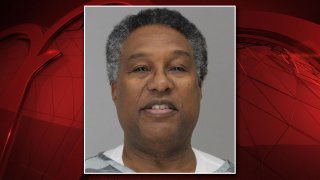
Dwaine Caraway, the disgraced former mayor pro-tem of Dallas who is now in prison for taking bribes, has formally asked to be placed in home confinement because of his deteriorating health and the danger of catching COVID-19 while behind bars.
In a motion filed Tuesday in federal court, Caraway’s lawyer said it would be a “just punishment” if the once-powerful politician were allowed to serve the rest of his 4 1/2 year sentence at his home.
If he remains in the federal prison system, which has been hit hard by the spread of the novel coronavirus, “for someone with his ailments, it could be a death sentence,” attorney Michael Payma wrote. "That would not be a just punishment for his level of offense.”
Once seen as the next mayor of Dallas, Caraway was sentenced in early April 2019 to 56 months in prison after pleading guilty to taking bribes, in exchange for his political prowess, in a widespread criminal conspiracy that cost taxpayers more than $100 million and shut down the Dallas County Schools, a provider of school buses in much of North Texas.
The downfall of Caraway, and the federal imprisonments of other conspirators in one of North Texas’ largest corruption cases, was largely the result of a years-long investigation by NBC 5 Investigates.
Caraway is serving his sentence in a federal prison in Big Spring, in West Texas.
The motion said Caraway, who is 68, has a number of underlying health conditions, including a heart ailment, that places him at higher risk if he were to contract COVID-19.
NBC 5 Investigates
Uncover. Reveal. Expose.
It also cited other cases throughout the country where federal inmates have been placed under home confinement because of the spread of the virus.
Payma said in the filing that his client’s “charges were serious, but he has shown good conduct and has served many months already for these crimes.”
“He respects the law and has only been remorseful in his time in prison,” the lawyer said, adding that Caraway has started to teach a class “where inmates were taught how not to re-offend.”
“To leave Mr. Caraway in prison, without the ability to social distance, is to put his health and the health of others at serious risk,” Payma said.
“Further,” he said, “Mr. Caraway poses no threat to the community as these were non-violent offenses.”
During his sentencing last year, Caraway said he was ashamed for what he had done. “I let the poison in under the door and [it] got into my nose,” he said, standing before U.S. District Judge Barbara Lynn.
Lynn, who is likely the one who will decide whether Caraway gets home confinement, expressed no sympathy at the time for the former council member.
“Something that goes on for six years is hard to call a mistake. At some point, it becomes a habit,” the judge said. The U.S. Attorney’s Office in Dallas did not immediately respond when asked for a comment on Caraway’s request.